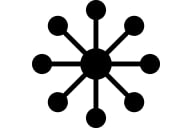You have /5 articles left.
Sign up for a free account or log in.

Изображения пользователя natatravel
The hottest summer on record, income inequality, homelessness, extreme political polarization, questionable reinterpretations of history, generative artificial intelligence—we’re surrounded by reminders that empowering everyone’s very best thinking has never mattered more. And yet for all the value that colleges and universities place on learning and thinking, we often work in ways that are forcefully counter to this goal.
As a cognitive psychologist, I know we can and need to do better. We must transform our courses and university structures to truly prioritize that most valuable of resources: our students’ minds.
Consider just a few examples. We hold 8 a.m. classes despite evidence that this often means less sleep and poorer learning for our students. We may continue with traditional grading, despite evidence that grades are not good motivators or indicators of learning, encouraging competition and intellectual safety over intellectual risk-taking, collaborative exploration and creativity. We may feel compelled to cover considerable content, when helping students evaluate and use information in discerning ways may be the more valuable contribution in this information- and misinformation-rich world. And we often still judge the intellectual rigor of a course by the amount and complexity of reading, the difficulty of exams, and the fast pace.
We need to be more cognitively kind.
By this I mean that we need to intentionally apply what science tells us about how our minds work across all levels and aspects of higher education. We need to be kind to one another’s minds. Doing so is key to supporting the fullest intellectual growth of our students. Cognitive kindness is an inclination most educators would gladly endorse and already uphold in at least some of what we do, drawing from the scholarship of teaching and learning and cognitive psychology to inform our approaches.
But cognitive kindness also urges us to think beyond content and pedagogy traditionally defined.
Take one of the most basic findings from cognitive psychology: our cognitive capacity in any given moment is limited. We simply cannot process everything everywhere all at once. Liberating our students’ minds from less central complexities and concerns becomes a valuable teaching tool, giving students more bandwidth for exploring a particular new concept or skill.
We might, for example, regularize use of our learning management system, how and when we communicate, and the number and timing of assignments. We might jettison some readings and assignments and leave some skills unassessed or de-emphasized on a given project: finely polished writing or specific details of citation format could perhaps go unevaluated when we’re trying to build another brand-new skill or a deeper understanding of a particularly complex concept. We might allow multiple modes of responding—e.g., via computer document, handwriting or voice recording, allowing students to engage in the way that is most inviting and accessible to them. We might be more transparent about our values and rationales, leaving less to decipher about our intent. We might design more authentic assignments addressing issues students are already thinking about. We might devote more time and effort toward cultivating students’ sense of belonging and trust, reducing the cognitive demands of social monitoring and impression management. Each of these in its own way liberates cognitive capacity for the complex, creative and integrative thinking we’re after.
And we can encourage cognitive restoration. The mental benefits of mindfulness meditation and being in nature for attention and working memory are well documented. Research also shows that achieving some closure on a task or issue reduces mind-draining attention residue. A brief meditation, a walk outside or discussing a campus issue at the forefront of students’ minds—while not directly engaging course concepts—can do wonders for the course-related thinking that follows. The alternative is covering more material with less student understanding or retention.
Truly effective approaches for cultivating better, more nuanced thinking may appear to do just the opposite—they often reduce complexity, ease demands and even stray from course content. And yet fewer details to attend to in a given assignment, authentic approaches to assessment, meaningful feedback with opportunities to resubmit work, class time dedicated to community-building and breaks interspersed throughout a class session can open up cognitive capacity for the sort of thinking and intellectual rigor that really matters.
Reducing unnecessary cognitive load is a powerful way to support students in taking on more meaningful cognitive challenges, and it’s worth considering beyond our classrooms. At the department and university levels, we might pay more attention to the broader context of the entire student learning experience. A look at our course offerings might generate ways to connect our courses more intentionally and extensively than previously imagined—perhaps with all courses in a given year unified by meaningful connections with a designated campus or societal issue. Aspects of student life that seem tangential—such as the timing of institutional breaks, the course registration process, housing assignments, or the application process for study abroad, to name a few examples—also impact student learning simply by the cognitive capacity they demand. What could these policies and processes look like if we designed them with cognitive ease as a key consideration, and what could that mean for our students?
Of course, prioritizing student thinking and learning takes cognitive effort itself, with competing considerations and practicalities at play. But the rewards can be tremendous, especially when approaches and policies impact the thinking of many. Moreover, as we strive toward genuine inclusivity, cognitive kindness is essential. Bringing a range of diverse individuals to the table is not enough. We must have the spaces, structures and systems in place so that each student can actually think well and contribute fully. Cognitive kindness, then, is a way toward cognitive justice.
Our minds are among our most valuable resources. We need to treat them that way. Institutions of higher education have both the opportunity and responsibility to lead this effort—first and foremost for students, and ultimately for faculty and staff, too. Let’s see what some cognitive kindness can do.








